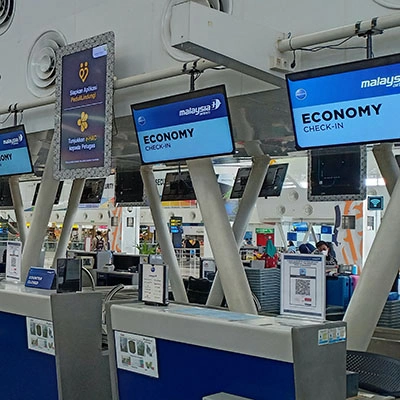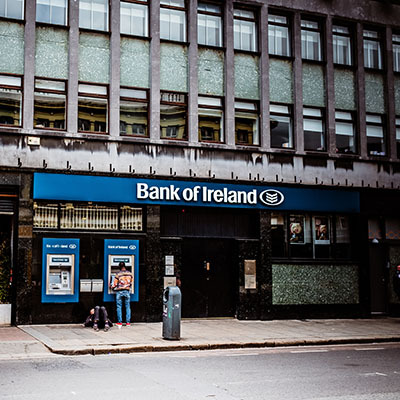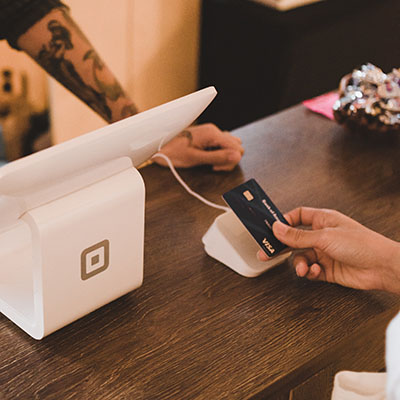If money has you rethinking your travel plans, you aren’t alone. A Bankrate survey found that 62% of Americans who skipped taking a summer vacation in 2023 did so because of inflation and rising prices. While we can’t do much about inflation or the cost of travel, we can plan ahead to avoid hidden travel fees.
How Do Hidden Travel Fees Work?
Sometimes called junk fees, drip pricing, or, if we’re feeling less generous, a “bait and switch,” hidden travel fees catch us off guard when the price at checkout turns out to be higher than an earlier quote. To be charged extra when we add a service is one thing. But where we all get frustrated is when the price of a hotel room, for example, goes up significantly because of an undisclosed fee.

Despite our frustration with hidden fees, they unfortunately work. Here’s why.
Imagine you’re booking a flight online from one of those comparison sites. You choose the least expensive airfare — a budget airline, economy seat, nothing fancy — and begin the checkout process feeling good about your decision. The website then asks if you want to select your seat, what luggage you’ll have, if you want drinks or snacks or entertainment on the plane.
You’re going on a weeklong trip, so of course you’ll have luggage. And a can of soda en route doesn’t sound like a bad idea. By the time you’re typing in your credit card information, it’s possible your very budget-friendly airfare has now doubled in price.
You could compare that price with another flight, perhaps on a more mainstream airline or by upgrading to another class so that the cost of checking luggage is included in the ticket. You could go directly to the airline’s website to avoid paying the comparison site’s booking fee. If you do that, you might find out that the original airfare isn’t the cheapest after all, or that it’s at least very close in price.
What the airlines and website are banking on, though, is that you won’t take that extra step to run the numbers again so that you’ll end up paying more. That’s how hidden fees work. They attract you with what seems like a great deal only to make their profit in other ways.
What Are Hidden Fees When Traveling?
Hidden airline fees

Major airlines have been charging for checked luggage for nearly 20 years, so baggage fees aren’t exactly “hidden” anymore. What can feel like a surprise, though, is when the cost of your airfare climbs as you choose your seat in advance or print your own boarding pass.
Other fees that are added to flights can include surcharges for carry-on luggage and overweight or oversized luggage, and fuel or close-in fees if you book with frequent flyer miles. There may also be a charge to change your flight, access in-flight Wi-Fi, or to get a blanket and pillow.
Avoid the hidden costs of flying by researching which airlines have the most hidden fees. The industry is getting more pressure to be transparent about pricing, so this should be easier than ever. Airlines with a reputation for having the most hidden fees include Frontier and Spirit airlines in the United States, and Ryanair and Wizz Air in Europe.
Pay extra attention to what fees are actually required. When you’re booking online, it’s easy to think that you have to make a selection or you have to pay the fee. For example, when the airline asks you to select your seat, the website can make it look like it’s a mandatory step before you can buy your ticket. You may be able to skip it though, especially if it’s going to result in an additional charge.
Instead of paying for food at the airport or on the plane, pack your own. Not only is bringing your own snacks less expensive, but it’s one of the tried-and-true ways to make flying with kids easier. And if you do choose a budget airline that charges for pillows and blankets, just pack a sweater and save your cash.
One final note: some international airfares include a departure tax mandated by the host country. This tax could be included in the price of your ticket, although not always. (And if it’s not included in your airfare, you’ll have to pay it at the airport, perhaps in cash with local currency.)
Hidden fees at hotels and resorts

What is a hotel resort fee? These are often charges for services or products, like pool access or using the safe, that you pay for even if you don’t use them. It may also include a hospitality fee or a tourist tax — Amsterdam’s tourist tax on hotel rooms was 12.5% as of early 2024 — instituted by the local government.
Other examples of a hotel resort fee can include in-room snacks and beverages (sometimes even that bottle of water sitting on the desk instead of in the minibar), parking, pool towels, Wi-Fi access, laundry, and energy use. There may be a surcharge for additional guests staying in your room or for bringing a pet.
The trickiest part about these fees is that, although the hotel is required to tell you about them at booking, they aren’t always obvious. They could be provided in the small print of a reservation, making it easy to skim past them. Stay diligent when you book, so that even if you have to pay the fee, you won’t be caught off guard.
Some of these hotel resort fees can’t be avoided; you’re going to pay for them whether you use that service or not. You can always ask for the fee to be waived or reduced, though. Ideally, you make the request before you book, but there’s no harm in asking after your stay, too. Either way, ask nicely. You’re more likely to get what you want with a little sweetness.
Another way to avoid fees is to look for alternatives. For example, what if the hotel charges for early check-in or late checkout? Sometimes we need those options because our plane lands early in the morning, or we want to do a last bit of sightseeing before we head home. Rather than change your check-in or –out time, ask the hotel about luggage storage. The hotel may hang on to your belongings to free up your room while you enjoy the rest of your trip.
Some luggage storage may also come with a charge, but it could be less than paying for extra time in the room. Compare the rates before making a final decision.
Finally, ask about the hotel’s loyalty program. Some brands waive resort fees if you’re a member and pay for your stay using points.
Hidden fees on rental homes
The most jarring hidden fee on an Airbnb or other rental home is probably the cleaning fee. When searching for Airbnbs in Charleston, South Carolina, recently, I had a budget of about $100 per night. The Airbnb website showed me every property with a nightly charge within that range. What it didn’t show — at least not right away — were the fees.
I found a rental I liked at $109 per night, so for five nights, I was expecting to pay about $550. The reality was a bill of $861.15 thanks to an additional $316.15 in cleaning fees, service fees, and taxes.
I did book the rental, even with the fees, but not before looking at other properties and considering a more standard hotel instead. I found that that price was comparable to what I’d find elsewhere, which is why I (begrudgingly) agreed to the fees. But the moral of this story is to review your reservation carefully before handing over your credit card information so you aren’t surprised by an unexpected charge.
Hidden online booking fees
Platforms like Reservations.com have their benefits. They can make it super easy to comparison shop and book your travel. However, some of them add service fees that aren’t apparent until you check out. How steep those fees are depends on the booking site, but don’t be surprised to see your bill increase by as much as 25%.
The best way to avoid these fees is to book directly through the airline or hotel website. Yes, it’s an extra step, but it could give you significant savings on travel.
Hidden fees when renting a car

One-way rentals or alternate drop-off locations often result in an extra fee. This comes into play if you’re picking up the car in Atlanta, Georgia, and leaving it in Tallahassee, Florida, for example. This is the rental agency’s attempt at recouping the cost of transporting the car from a less-desirable location back to an airport or city where more rental cars are needed.
Who’s driving the car can also impact the price. Most agencies in the U.S. require drivers to be at least 25 years old. If you’re younger than that, you might still be able to rent a car, just at a higher price. If you’re traveling as part of a couple or group and you want more than one person to be able to drive on your road trip, you’ll need to pay an additional fee for extra drivers. To avoid this fee — or keep it at a minimum — be selective about who you choose to do the driving and make sure they’re over 25 years old.
Finally, remember to factor in the cost of fuel, even though it isn’t your car. Yes, you’ll need to fill up the tank during your trip, but the agency will expect you to return the car with a full tank as well. If you don’t, they’ll charge you for the gas they put in the car for you plus an additional fee, perhaps making the charge $10 or more per gallon.
Refill the tank before returning the car and do it at a station with the cheapest gas you can find. This will probably mean stopping before you get anywhere near the airport or rental agency.
Hidden credit card and bank fees
These hidden fees are most common with international travel. Many times, I’ve returned home from a trip to Europe or South America, read my credit card statement and seen an extra $1.64 here and another $2.18 there, all listed under foreign transaction fees. You might see similar surcharges if you use your bank card at a foreign ATM.
I always knew before the trip that I'd get these charges, but I didn’t think much of them in the moment of buying something. And even when I did remember them, it wasn’t clear exactly how much extra I’d be charged.
Avoid these fees by carrying a bit of cash with you. Use it at least for smaller purchases like fun trinket souvenirs or snacks. You’ll still pay a fee somewhere along the line, but you’ll at least minimize the number of times you pay the fee.
Regardless of whether you’re traveling internationally or domestically, it’s increasingly common to pay what’s called a “swipe fee” when you use your credit card. Credit cards are increasing their fees for vendors. To keep their own cost of business down, those hotels, restaurants, and shops are passing the fee on to you as the customer. Don’t be surprised if what you thought was a $26 meal is now pushing $40 thanks to taxes and swipe fees.
Other Hidden Costs of Travel
Sometimes when we’re surprised by the cost of travel, it’s not because of fees. We simply failed to include everything in our budget.
Seven Corners writer Clay found this out the hard way. A cheap $80 flight made it sound like he’d get an ultra-inexpensive vacation out of checking on his in-laws' Florida home. Before he knew it, though, cab fare, parking fees, snacks and beverages, all increased his trip cost. Ultimately, he spent more than double what he’d expected before he left home.
“When I got there, the miscellaneous charges racked up and by the end, I realized the trip financially just was not worth it,” he said.
Clay was anticipating some expenses like meals in Florida and a round of golf. He'll be the first to admit that he was surprised by how much more ended up on his bill, though.
Here’s where Clay’s money went:
- Ground transportation to and from the Florida airport: $86 ($63 of which went to a taxi service before he wised up and used Uber for a more affordable $23 at the end of his trip)
- Snacks, beverages, and meals at the airport: $38
- Airline fees: $15
- Rental golf clubs: $50
- Golf course valet parking: $5
- Alcoholic beverages: $25
- Airport parking: 3 days at $9/day = $27
“My expectation versus reality was completely off,” said Clay. “I knew cab fare would cost money, I knew I’d have to buy a couple meals and pay for my rental clubs, but I certainly did not expect the total cost to exceed $200.
“My advice for planning your next trip is to think through all aspects of traveling and make sure not to leave anything out."
Like Clay said, the best way to avoid the hidden costs of travel is to be thorough with your budget. Include everything, including hotels, airfare and ground transportation, meals, and all the fees that come with those reservations.
Remember to also think beyond those essentials, though. Failing to factor in less obvious expenses and incidentals can ruin your budget and leave you spending more than you ever planned.
Give yourself plenty of time to create this list. Inevitably over the course of a few days, you’ll add items that pop into your head during your daily commute or while you’re taking a shower.
You can also picture yourself going through each step of your trip and what the process is like. Think, “I’m driving to the golf course. I’m parking at the golf course. I’m paying the greens fees and renting clubs. I play 18 holes. Now I’m thirsty, so I buy a drink and a snack.”
Then ask yourself how much money each of those steps will take. If you aren’t sure how much to budget for a step, look for the information on websites. Ideally, the golf course will tell you if there’s a fee for valet parking (as an example). If not, call and ask.
Another way to avoid surprise expenses is to be intentional with digital payments during your trip. Some cruise lines allow you to pay for onboard purchases with a wrist band or by swiping your room card. Because you haven’t actually exchanged any physical money, it’s ridiculously easy to lose track of how much you’ve bought over the course of the cruise.
The same goes with all those tap-to-pay purchases using your smartwatch or phone while you're out sightseeing. If you don’t stay aware, you’ll overspend in a hurry.
If you travel frequently, update your budget when you get home, adding any surprise expenses you incurred. Use the updated budget as a reference point the next time you’re planning a trip, and you’ll be less likely to forget something.
Travel expenses that are often overlooked during planning include:
- Restaurant tips, delivery fees, and service fees
- Souvenirs
- Parking fees at hotels, on the street or in pay lots and garages, event centers, etc.
- Snacks and drinks beyond your usual meals
- Ground transportation (Uber, buses, etc.) around your destination, not just to and from the airport
- Tips and gratuity for hotel housekeeping, room service, drivers, valet attendants, etc.
Making Travel Insurance Part of Your Travel Budget
With the rising cost of travel — because of both the costs we expect and those that sneak up on us — it is that much more important to protect the financial investment we make in our trips. Travel insurance can protect that investment.
If you have to cancel your trip for a covered reason or need to interrupt your trip and come home early, travel insurance can reimburse you for prepaid, nonrefundable trip costs. This is money you would otherwise lose if not for your trip protection. And while, yes, travel insurance is an additional expense for your travel budget, it’s a small one given the tradeoffs. A relatively small price for travel insurance can end up saving you much larger amounts of money when the unexpected happens.
Get a quick quote online or talk to a licensed agent to find the right coverage for your trip. As you customize your plan, you’ll get an up-to-date total for your coverage. When you’re ready to purchase, you’ll already know exactly what that coverage costs, no hidden fees or surprises.
Travel Like a Pro with The Wayfinder
Did you enjoy this blog? Get more articles like it before anyone else when you subscribe to our monthly newsletter, The Wayfinder.
Sign me up

